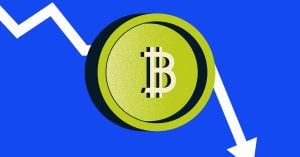On the evening of February 24, 2024, President Luiz Inácio Lula da Silva addressed the nation via broadcast, detailing significant initiatives aimed at bolstering education and healthcare for Brazilian citizens. The focus of his speech was on the rollout of the Pé-de-Meia program, which incentivizes young learners, and the expanded offerings of the Farmácia Popular scheme.
Before nearly every citizen tuned to their radios and televisions, Lula highlighted the financial support poised to benefit students throughout Brazil, stating, "É para os jovens brasileiros que trago a primeira boa notícia. O pagamento da poupança de R$ 1 mil do programa Pé-de-Meia entra amanhã na conta e rendendo". This support, he conveyed, is not just another government measure but rather a commitment to invest in young minds at a pivotal stage of their lives.
The Pé-de-Meia program, which translates to “Penny Savings,” is intended to aid around 4 million students by offering monthly stipends and substantial lump-sum payments upon graduation. According to Lula, more than 90% of students involved have successfully passed their academic years. This initiative is particularly notable as it combines financial encouragement with educational achievement, aiming to significantly curb school dropout rates.
Students attending public high schools who qualify under the Cadastro Único for Social Programs (CadÚnico) receive R$ 200 each month, with additional bonuses available for those who participate in the Enem (National High School Examination). The total benefits can reach up to R$ 9,200 throughout their academic careers, effectively ensuring financial support throughout high school and thereby motivating students to remain steady on their educational paths.
Simultaneously, Lula unveiled the expansion of the Farmácia Popular program, which is now offering all 41 listed medications free of charge. This initiative is particularly important for those suffering from chronic conditions like hypertension, diabetes, and asthma. By eliminating out-of-pocket costs for medications, the program aims to directly assist more than one million people annually, particularly seniors who have previously had to pay copayments.
“Depois de dois anos de reconstrução de um país que estava destruído, estamos trabalhando muito pra trazer prosperidade para todo o Brasil, principalmente para quem mais precisa,” Lula stated, emphasizing his administration's focus on recovery and support for vulnerable populations across the country.
While the president attempted to present these initiatives positively, his administration faces significant challenges, particularly relating to his declining popularity as revealed by recent Datafolha surveys showing his approval rating has plummeted to just 24%. This low tide has prompted both Lula and his administration to adopt more direct communication strategies, such as chain broadcasts, to showcase their achievements and counter negative perceptions.
The timing of this address was particularly significant as it coincided with rising discontent among oppositional groups. Ahead of the broadcast, prominent critics of Lula rallied support for organized protests dubbed “panelaço,” which invites citizens to make noise with pots and pans during the speech, echoing discontent over rising living costs and taxes. This form of protest has historical roots dating back to 2015 during the presidency of Dilma Rousseff and has resurfaced as dissatisfaction grows under Lula’s reign.
Opposition members like Deputy Silvia Waiãpi underscored sentiments about growing food insecurities and financial distress, creating urgency for such protests. "Reflexo de muitos brasileiros com suas panelas vazias. Sem dinheiro para comprar comida," she remarked, filling the atmosphere with apprehension surrounding the government's effectiveness to manage economic recovery.
The backdrop against which this address is set is equally significant. This is Lula's administration’s first major communication effort under the guidance of his new communication head, Sidônio Palmeira, signaling potential shifts not only in messaging but also in policy focus moving forward. The hope within Lula's camp is to transform the narrative from one of struggle to resilience and collective progress, with programs like Pé-de-Meia and Farmácia Popular serving as focal points for this effort.
Again citing hopes for national unity, Lula closed his address with inspiring words: "Seguimos ao lado de cada brasileiro e de cada brasileira: pra levantar, sacudir a poeira e dar a volta por cima." This resounding pronouncement aims to rally individuals and restore faith among the populace as he continues to navigate the turbulent waters of his presidency.
Whether these programs will successfully improve his administration's image remains to be seen as citizens' immediate concerns over inflation and social justice loom large on the national stage. Nevertheless, Lula's commitment to addressing youth education and healthcare remains strong, and the coming weeks will be pivotal for assessing the impact of these initiatives.



